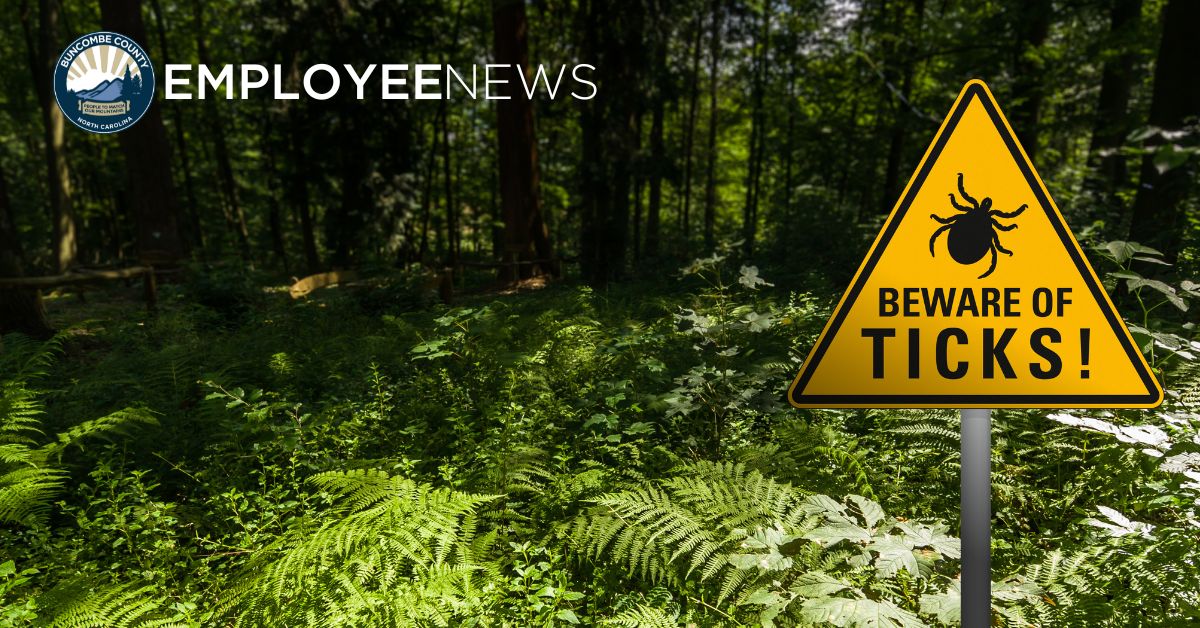This news item expired on Thursday, May 22, 2025 so the information below could be outdated or incorrect.

It's that time of year when we go out into the woods, but there's some things you need to know about staying safe. Below you will find updated information and resources to help you stay safe.
New in 2025 is that Lyme Disease is now considered endemic to Northwest North Carolina, meaning that it is regularly occurring in the area. As a result, post-exposure prophylaxis (PEP or preventive treatment) for Lyme disease is recommended under specific circumstances for persons residing or traveling in the following counties: Buncombe, Madison, Yancey, Mitchell, Avery, Watauga, Ashe, Alleghany, Surry, and Stokes.
Lyme disease PEP with a single-dose of doxycyline should be considered under the following circumstances:
- Attached tick is identified as a deer tick (aka blacklegged tick)
- Tick is estimated to have been attached >36 hours based on degree of engorgement or time of exposure
- Treatment is started within 72 hours of tick removal
- The bite occurred in an area where Lyme disease is common (i.e., an endemic area)
Common questions
Should I take PEP if I find a tick on me that isn’t attached?
No.
Should I take PEP if the tick bite is not from a deer tick?
No.
Should I take PEP if the attached tick was not engorged?
No
Should I take PEP if the tick was removed more than 72 hours ago? No. If it is too late for PEP, monitor for symptoms, rash, fever, headache, and seek care if they occur.
Important: Even without a known tick bite, seek care if you develop a bullseye rash, or if you develop an unexplained fever during tick season.
It’s best to avoid tick bites in the first place!
Preventive measures for avoiding tick bites include:
Additional resource